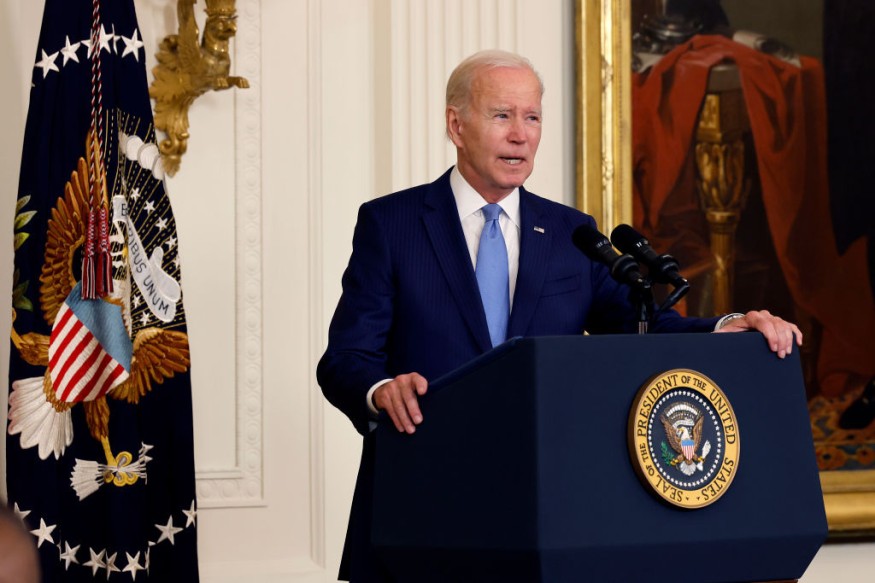Joe Biden Quashes US Debt Default Fears with Strong Message

President Joe Biden and House Minority Leader Kevin McCarthy, a Republican, have jointly expressed their dedication to promptly resolve the issue of raising the US debt ceiling, which currently stands at $31.4 trillion, per Reuters.
The two leaders agreed on Tuesday to engage in direct negotiations, effectively ending a lengthy impasse.
With the deadline of June 1 looming, a deal must be reached and passed by both chambers of Congress to ensure the federal government has the necessary funds to meet its obligations.
Biden announced on Saturday that he would be cutting short his Asia trip and returning to Washington on Sunday, allowing for ongoing staff-level discussions.
He clarified that the negotiations primarily revolve around the budget framework and do not question the United States' ability to fulfill its financial commitments.
The congressional leaders have unanimously agreed on one point: the nation will not default. This assurance aligns with the consistent stance taken by leaders in such situations.
House Republicans, who hold a narrow 222-213 majority, have been pressing Democrats for months to agree to spending cuts in exchange for raising Congress's debt limit.
Government spending consistently exceeds tax revenue, so the US debt ceiling must be raised periodically to accommodate the shortfall.
READ NEXT : Joe Biden Announces Key Nominees
What Is US Debt Ceiling?
The US debt ceiling, established by Congress, serves as the upper limit on the amount of money the federal government can borrow to fulfill its financial obligations, according to CBS News.
It is crucial in enabling the government to meet actual payments, including salaries for military personnel and Social Security benefits.
It is important to note that increasing the debt ceiling does not grant the government permission to spend additional funds.
LendingTree's senior economist, Jacob Channel, aptly compares refusing to raise the debt ceiling to dine at a restaurant.
It is like examining the menu, being aware of the prices, and then suddenly declaring an inability to pay the amount owed when presented with the bill.
This analogy highlights the potential consequences of failing to increase the debt ceiling and its challenges for fulfilling financial commitments.
What Happens If US Debt Defaults?
The prospect of the government surpassing the US debt ceiling raises significant concerns as it would effectively halt further borrowing, said BBC.
This would result in the government's inability to meet crucial financial obligations, including payroll payments to military personnel and federal employees. Millions of elderly Americans who rely on Social Security checks would be left without their vital benefits.
Congress routinely votes to raise or temporarily suspend the debt ceiling to secure additional funds. However, a default, unprecedented in US history, would severely undermine confidence in the democratic system's ability to meet financial commitments.
Economists are deeply apprehensive about the potential consequences, fearing a domino effect on the US economy, leading to a sharp downturn and a surge in unemployment.
Treasury Secretary Janet Yellen emphasized the destructive nature of a US default, describing it as an "economic and financial disaster" during a presentation on Tuesday.
John Kirby, the spokesperson for the White House National Security Council, highlighted the interests of countries like Russia and China, who would relish the opportunity for the US to default.
Despite the looming risks, a compromise to avert such a scenario has yet to materialize. In April, Republicans proposed a deal extending the debt ceiling suspension by $1.5 trillion or until March 31, depending on which milestone is first reached.
In exchange, they would limit spending growth to 1% annually for the next ten years and maintain spending for significant government agencies at 2022 levels in the upcoming fiscal year.
They estimated potential savings of $4.8 trillion as a result.
However, this proposal would have far-reaching implications for President Joe Biden's legislative priorities, such as student loan forgiveness, potentially derailing these ambitions.
READ MORE : Social Security Payments Could Be Disrupted
This is owned by Latin Post.
Written by: Bert Hoover
WATCH: 'We will not default': Biden speaks on debt ceiling negotiations - From NBC News
Subscribe to Latin Post!
Sign up for our free newsletter for the Latest coverage!
© 2026 Latin Post. All rights reserved. Do not reproduce without permission.













